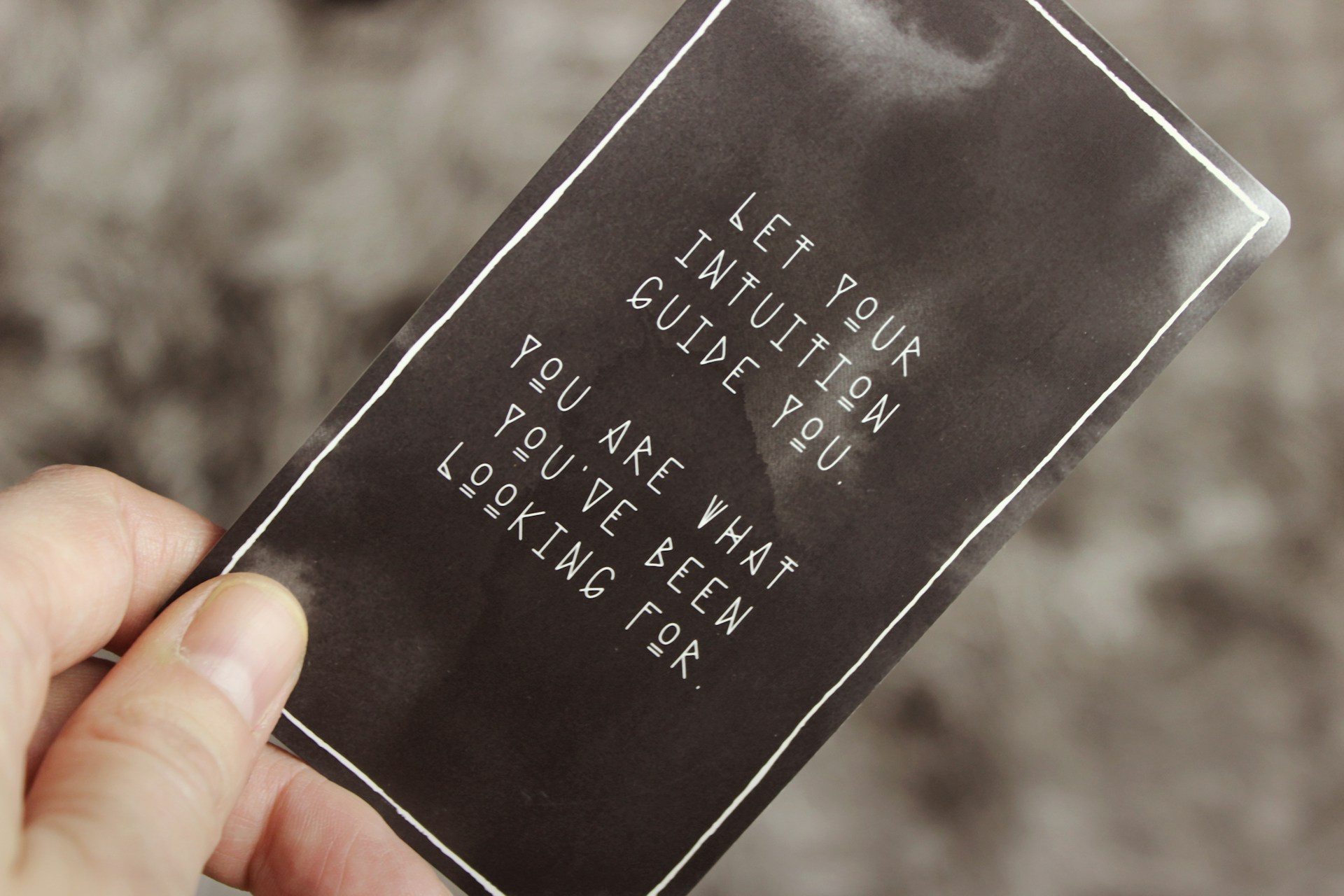Ever had that unexplainable feeling in your gut that something was just right—or terribly wrong? That’s what we call gut instinct, a powerful internal compass that often guides us through snap decisions and complex dilemmas. While sometimes it feels like a superpower, it’s important to know when to rely on it and when it might lead us astray.
In this post, we’ll dive deep into understanding when you should trust your gut feelings and when you might want to ignore them, ensuring you make the most informed decisions in your daily life.
Understanding Gut Instinct
Gut instinct, often referred to as intuition, is that immediate understanding or reaction we have to a situation without the need for conscious reasoning. It’s like an internal whisper or a nudge that pushes us towards a decision.
This phenomenon is rooted in our brain’s ability to rapidly assess information based on past experiences and emotional inputs. It’s fascinating how our minds process these cues subconsciously to deliver a verdict that sometimes we can’t logically explain.
The Science Behind It
You might wonder how these instincts manifest physically. It all ties back to the intricate relationship between our brain and gut, which communicate through hormones and nerves like the vagus nerve.
When faced with a decision, this connection can cause physical sensations, such as butterflies in your stomach, which signal to our brain that something significant is happening. Understanding this can help us better interpret these feelings as valuable insights rather than random reactions.
When to Trust Your Gut Instinct
Quick Decisions
In situations where time is critical and there’s no room to weigh options thoroughly, trusting your gut can be invaluable. Think about a time when you had to make a split-second decision—like swerving to avoid an accident. There wasn’t time to analyze; your gut took over, and you acted. In emergencies, our intuitive mind often knows what to do, even if our conscious mind hasn’t caught up yet.
Personal Safety
Your gut instinct can be a powerful ally in ensuring your safety. If you’ve ever walked into a room or down a street and something felt off, that’s your intuition speaking. It’s pulling signals from your surroundings and your past experiences to warn you. In these moments, listening to that nagging feeling in the back of your mind could be crucial for your wellbeing.
Judging Character
We all meet new people, and often, our first impressions are more accurate than we give them credit for. Our instincts help us detect subtleties in behavior and tone that can give us insights into someone’s character. This doesn’t mean you should judge a book by its cover immediately, but if something feels off about someone, there might be a reason why your gut is waving a red flag.
Creative and Professional Pursuits
When you’re in a creative or professional rut, sometimes the best thing to do is let go of the pros and cons lists and trust your instinct. Many artists and leaders talk about following their gut feelings which often leads to breakthroughs and innovation. This doesn’t mean throwing all caution to the wind but rather allowing your intuition to guide you when conventional methods fall short.
When to Ignore Your Gut Instinct
Complex Decisions Involving Multiple Variables
When you’re faced with a decision that has multiple outcomes or requires juggling various factors, relying solely on your gut can be risky. Consider a business decision involving investments or a strategic move that impacts many people.
These scenarios require data, analysis, and perhaps most importantly, time—none of which are gut instinct’s strong suits. In these cases, slowing down and evaluating the facts can prevent costly mistakes.
Highly Emotional Situations
Emotions can significantly cloud our judgment, making it difficult to distinguish between gut instinct and emotional reactions.
For instance, in the heat of an argument, what feels like your gut telling you to say something hurtful could just be anger speaking. Learning to recognize when emotions are driving your decisions is crucial. Taking a step back to cool down can help ensure you’re using your intuition wisely, not impulsively.
Biases and Stereotypes
Our instincts are not free of our personal biases and the stereotypes we’ve learned. These prejudices can lead to snap judgments that aren’t based on facts but on ingrained perceptions, which can be dangerously misleading. In situations where your initial gut reaction may be influenced by a stereotype, it’s essential to challenge this instinct and seek objective evidence before making a decision.
Lack of Expertise
It’s important to acknowledge when we’re out of our depth. If you’re making a decision in an area where you have limited knowledge or experience, your gut instinct might not be the best guide. In these instances, deferring to the expertise of others and seeking additional information can lead to better outcomes than going with your gut. Recognizing and admitting your limits is a strength, not a weakness.
Balancing Gut Instinct With Rational Thinking
Integrating your intuition with rational thought can be a powerful strategy for effective decision-making. It’s about finding a balance where you can benefit from the speed and instinctual nature of intuition while also utilizing logical reasoning to ensure accuracy and thoroughness.
Strategies for a Balanced Approach
One way to achieve this balance is through reflective thinking, which involves questioning your instincts and evaluating whether they align with the facts at hand. Another useful technique is to seek a second opinion, which can provide a fresh perspective and either confirm your instincts or challenge them.
Additionally, creating a simple pros and cons list can help visualize the rational side of your decisions, providing a clear path forward.
Importance of Self-Awareness
The key to effectively using your gut instincts lies in self-awareness. Understanding your emotional triggers, recognizing your biases, and knowing when you’re likely to rely on intuition can help you decide when to trust these feelings and when to set them aside. Developing this awareness is an ongoing process, one that involves continuous learning and adaptation based on your experiences.
Navigating the complex interplay between gut instinct and rational thought requires practice and attentiveness. By understanding when to trust these intuitive feelings and when to approach decisions more analytically, you can enhance your decision-making skills and lead a more balanced life.
Your gut instinct is a tool in your decision-making arsenal, not the sole decider. Use it wisely, and it can serve you well in numerous situations.
















